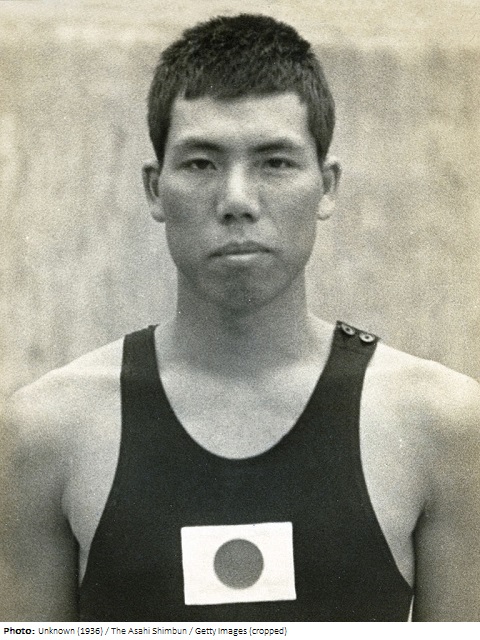Masaji Kiyokawa

Biographical information
| Roles | Competed in Olympic Games • Administrator |
|---|---|
| Sex | Male |
| Full name | Masaji•Kiyokawa |
| Used name | Masaji•Kiyokawa |
| Original name | 清川•正二 |
| Born | 11 February 1913 in Toyohashi, Aichi (JPN) |
| Died | 13 April 1999 in Tokyo, Tokyo (JPN) |
| Affiliations | Nagoya Higher Commercial School, Nagoya (JPN) / Hitotsubashi University, Kanda (JPN) |
| NOC |  Japan Japan |
| Medals | OG |
| Gold | 1 |
| Silver | 0 |
| Bronze | 1 |
| Total | 2 |
Biography
Part of the dominant Japanese swimming team at the 1932 Olympics, Masaji Kiyokawa won a gold medal in the 100 m backstroke, as the Japanese team swept the medals, with Toshio Irie and Kentaro Kawatsu taking the other medals. Kiyokawa returned in 1936, but was unable to retain his title, settling for bronze instead. At the 1934 Far Eastern Games, he placed second in the 100 m backstroke behind Kawatsu. At home, he won a total of five national titles in backstroke events, three in the 100 m and two in the 200 m.
A former world record holder in the 400 m backstroke, Kiyokawa became the national team coach after the war. He also started a sports administration career, serving in the technical committee for swimming of FINA. In 1969, he became an IOC member, joining the executive board in 1975 and becoming the first Asian IOC vice-president (1979-1983). He was also involved in the Japanese bid for the 1988 Olympics to be held in Nagoya. Kiyokawa was also a successful businessman, rising to become CEO of the Kanematsu conglomerate. For his achievements, he received the Olympic Order in Silver in 1989 and in Japan the Asahi Prize and the Medal of Honor with the Purple Ribbon. He died of pancreatic cancer of age 86.
Results
| Games | Discipline (Sport) / Event | NOC / Team | Pos | Medal | As | |
|---|---|---|---|---|---|---|
| 1932 Summer Olympics | Swimming (Aquatics) |  JPN JPN |
Masaji Kiyokawa | |||
| 100 metres Backstroke, Men (Olympic) | 1 | Gold | ||||
| 1936 Summer Olympics | Swimming (Aquatics) |  JPN JPN |
Masaji Kiyokawa | |||
| 100 metres Backstroke, Men (Olympic) | 3 | Bronze |
Organization roles
| Role | Organization | Tenure | NOC | As | |
|---|---|---|---|---|---|
| Member | International Olympic Committee | 1969—1989 |  JPN JPN |
Masaji Kiyokawa | |
| Executive Board Member | International Olympic Committee | 1975—1979 |  JPN JPN |
Masaji Kiyokawa | |
| 3rd Vice-President | International Olympic Committee | 1979—1980 |  JPN JPN |
Masaji Kiyokawa | |
| 2nd Vice-President | International Olympic Committee | 1980—1982 |  JPN JPN |
Masaji Kiyokawa | |
| 1st Vice-President | International Olympic Committee | 1982—1983 |  JPN JPN |
Masaji Kiyokawa | |
| Honorary | International Olympic Committee | 1989—1999 |  JPN JPN |
Masaji Kiyokawa |
Special Notes
- Listed in Olympic Order Recipients (1989 (Silver))